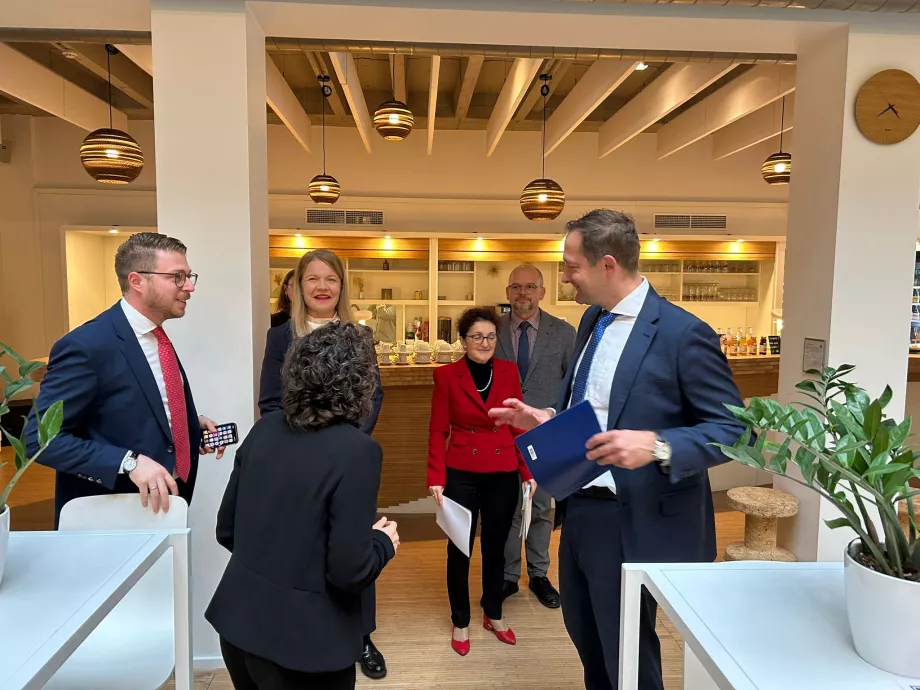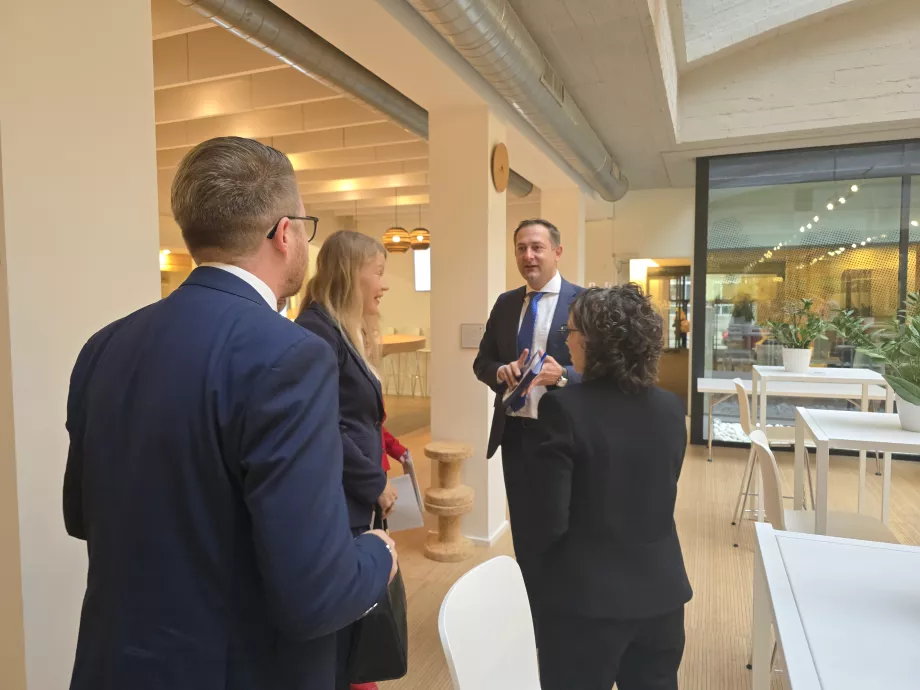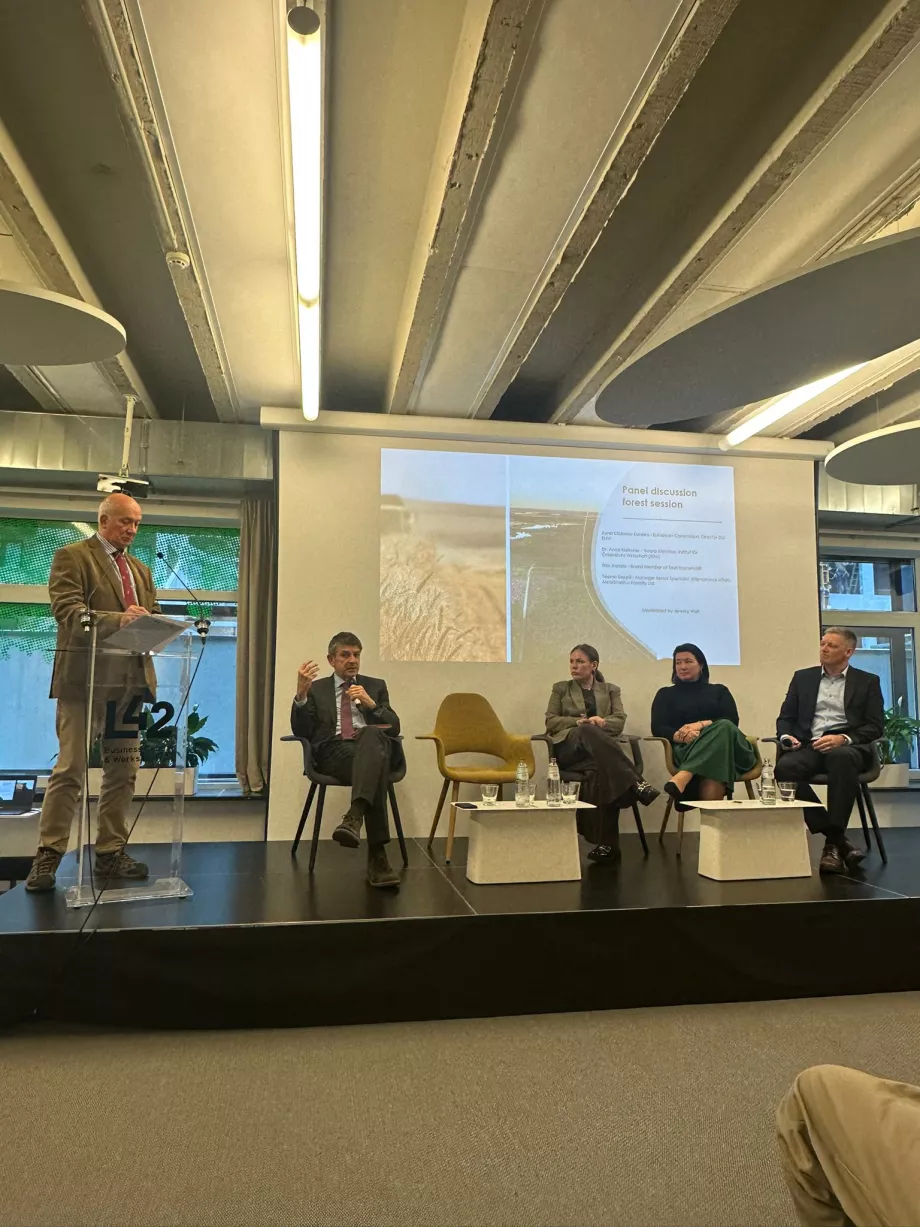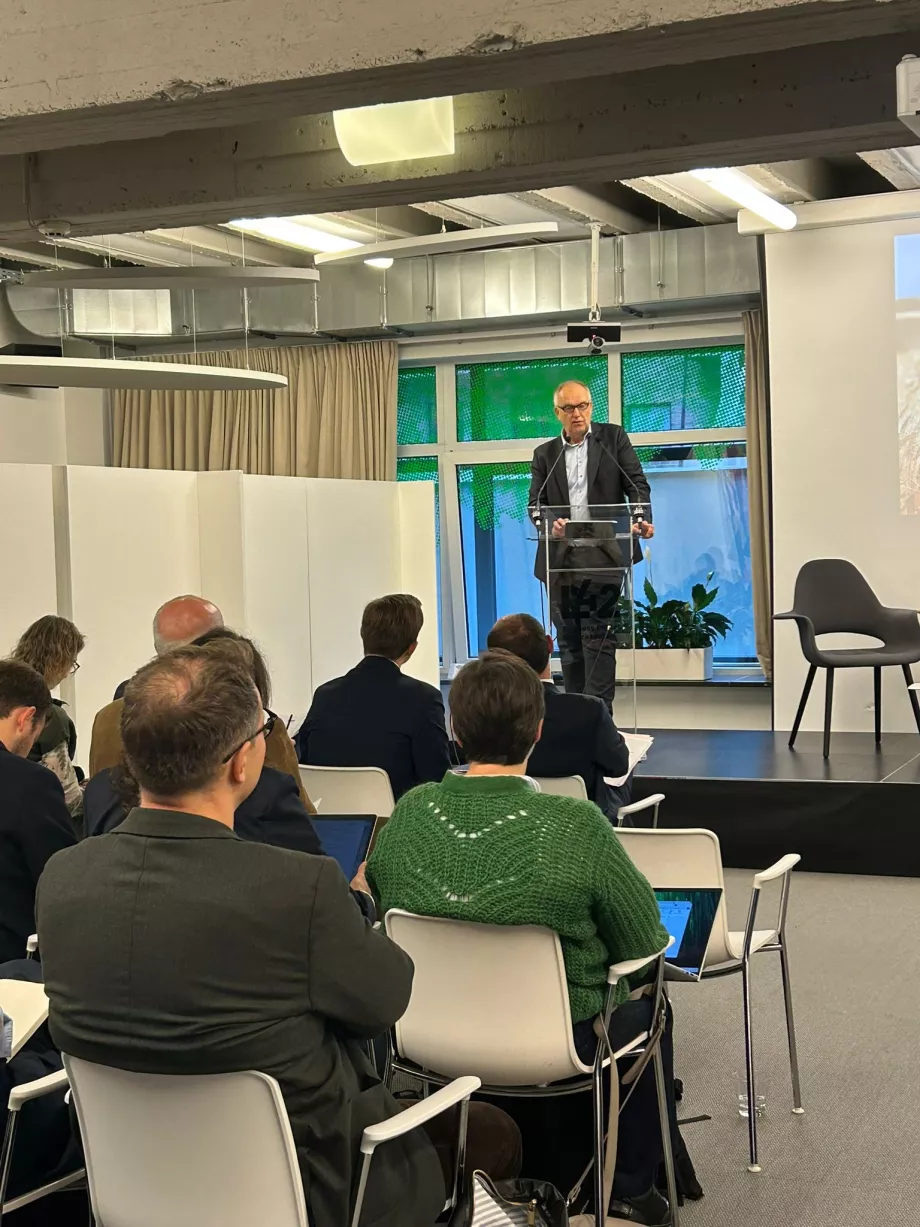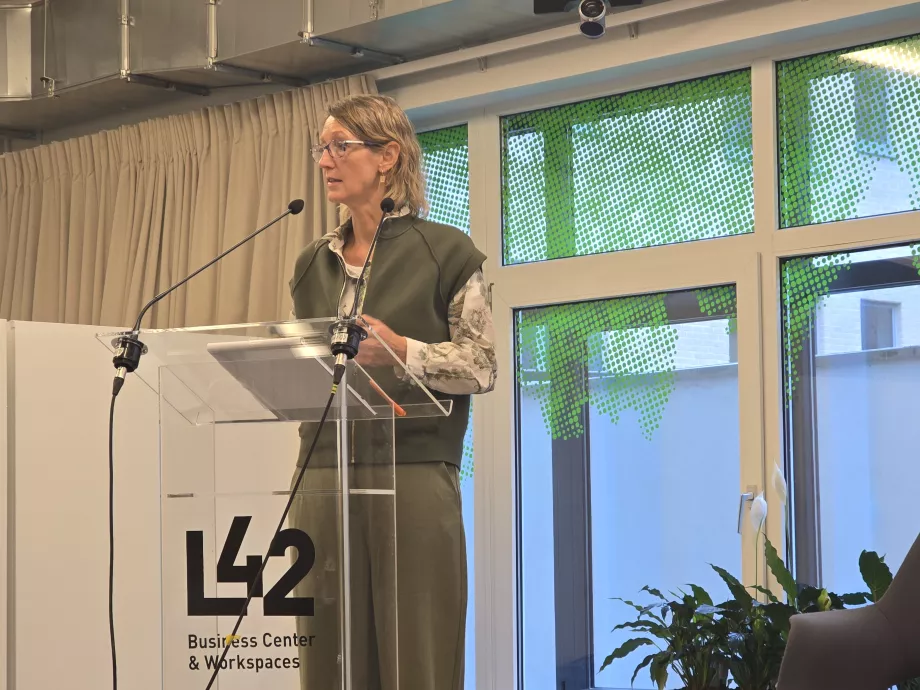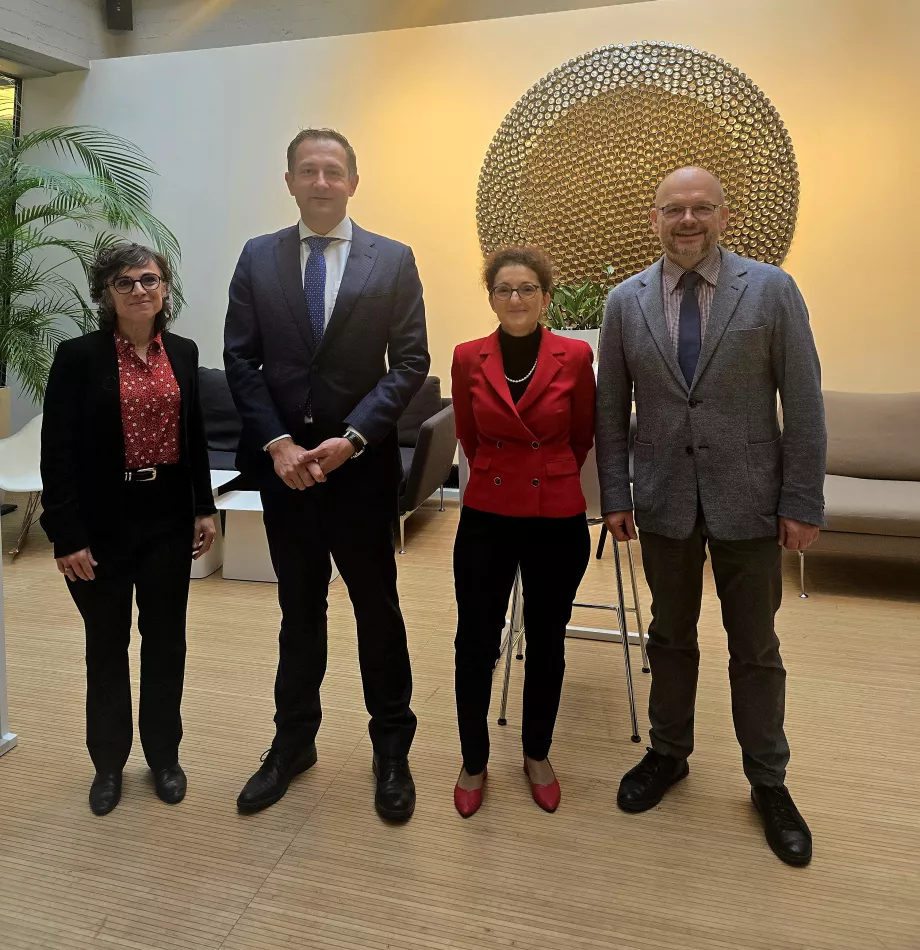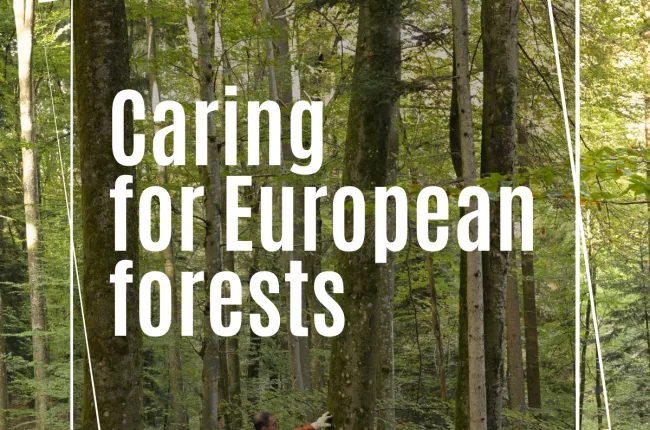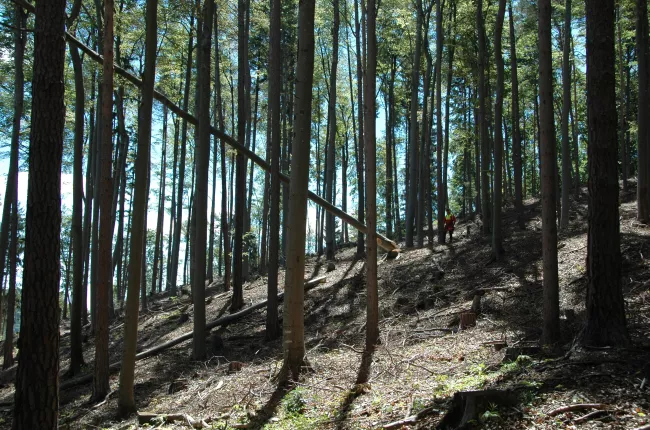On 14 October, forest owners, farmers and policymakers gathered in Brussels to discuss how Europe can build a stronger and more sustainable bioeconomy.
The Confederation of European Forest Owners (CEPF), together with COPA-COGECA and the European State Forest Association (EUSTAFOR), co-organised a joint event entitled “Boosting Competitive and Resilient Agricultural and Forest-Based Bioeconomy in the EU”, held at the L42 Business Center in Brussels.
Bringing together representatives from the European institutions, farmers, forest owners, managers, and researchers, the event focused on the role of the primary production sectors in strengthening Europe’s bioeconomy — driving sustainability, innovation, and resilience across the EU.

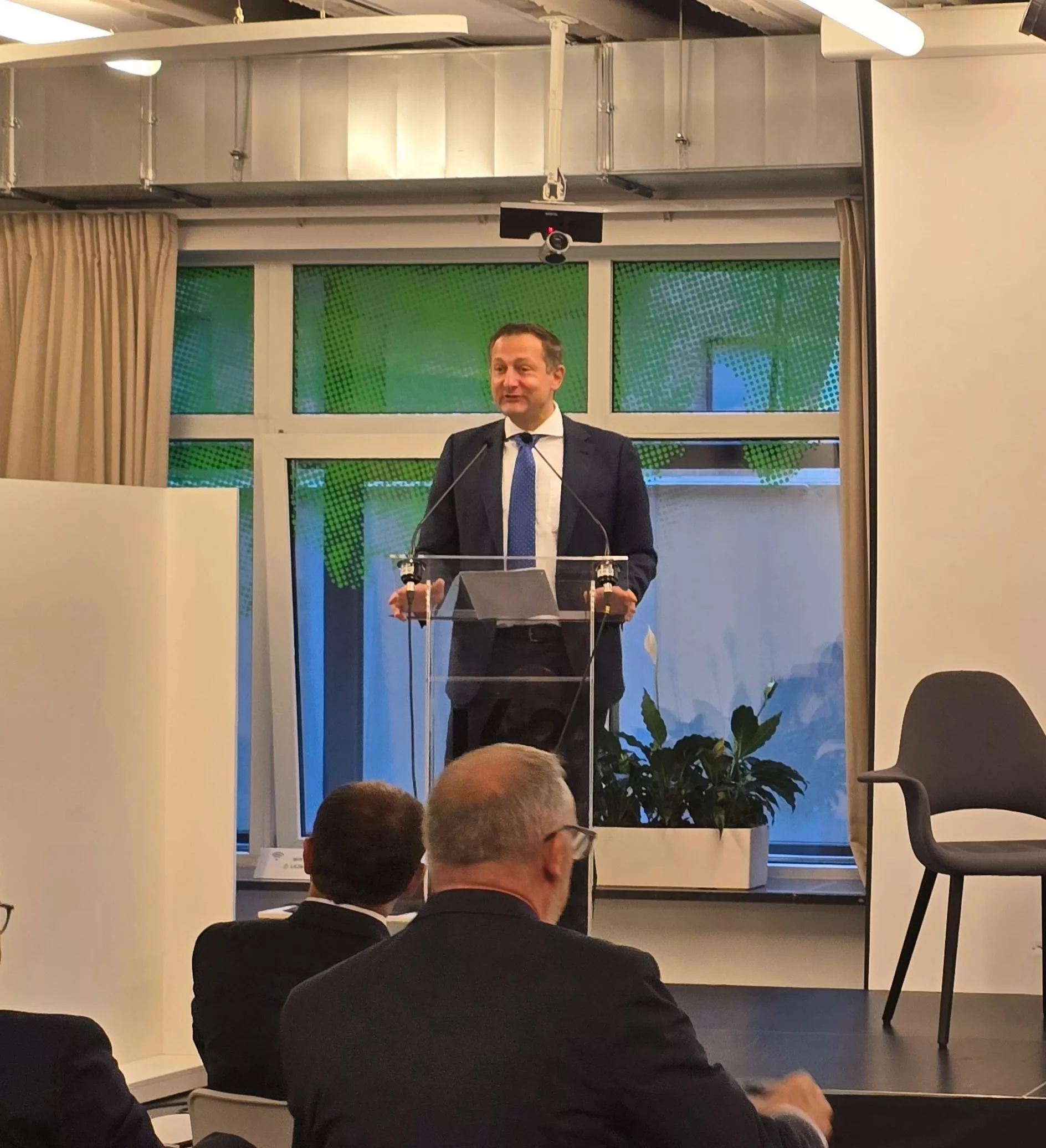
The event was officially opened by Commissioner Christophe Hansen, who underlined the importance of building a competitive and resilient EU bioeconomy, while recognising the crucial contribution of primary producers in ensuring a sustainable and circular transition.
He was followed by Mathias Bach Kirkegaard, Environment Attaché at the Permanent Representation of Denmark to the EU, who provided valuable insights on how policy and practice can be aligned to enhance Europe’s bio-based sectors.
In their opening remarks, Patrick Pagani, Deputy Secretary General of COPA-COGECA, Carl-Anton Waldeck, Vice-President of CEPF, and Juha Niemelä, President of EUSTAFOR, reaffirmed the commitment of Europe’s farmers and forest owners to contribute to the bioeconomy. They highlighted how the sectors are already enabling the shift away from fossil-based materials and energy by supplying sustainably sourced and renewable raw materials, providing essential services to society, creating jobs, and supporting viable rural areas — all while maintaining resilient forestry and agriculture.
Forestry Session: Science, Practice, and Policy in Dialogue
Moderated by Jeremy Wall, the forestry session explored how forest owners and managers are contributing to a thriving EU bioeconomy.
Dr. Anna Kleissner (Institut für Österreichs Wirtschaft) opened the discussion by presenting the latest scientific findings on the contribution of forest-based value chains to the EU bioeconomy. This was followed by practical examples shared by Triin Alatalo (Eesti Erametsaliit) and Teemu Seppä (Metsähallitus Forestry Ltd), illustrating how forest owners and managers across Europe are balancing innovation, sustainability, and resilience on the ground.
The session concluded with an engaging panel discussion featuring Aurel Ciobanu-Dordea (European Commission, DG ENVI), Dr. Kleissner, Alatalo, and Seppä, who exchanged views on how science, policy, and practice can work hand in hand to strengthen Europe’s forest-based bioeconomy.
Before the coffee break, Maria Grapini, MEP, took the floor to underline the need for coherent EU policies that both support rural economies and recognise the contribution of Europe’s forest and agriculture sectors to the green transition.
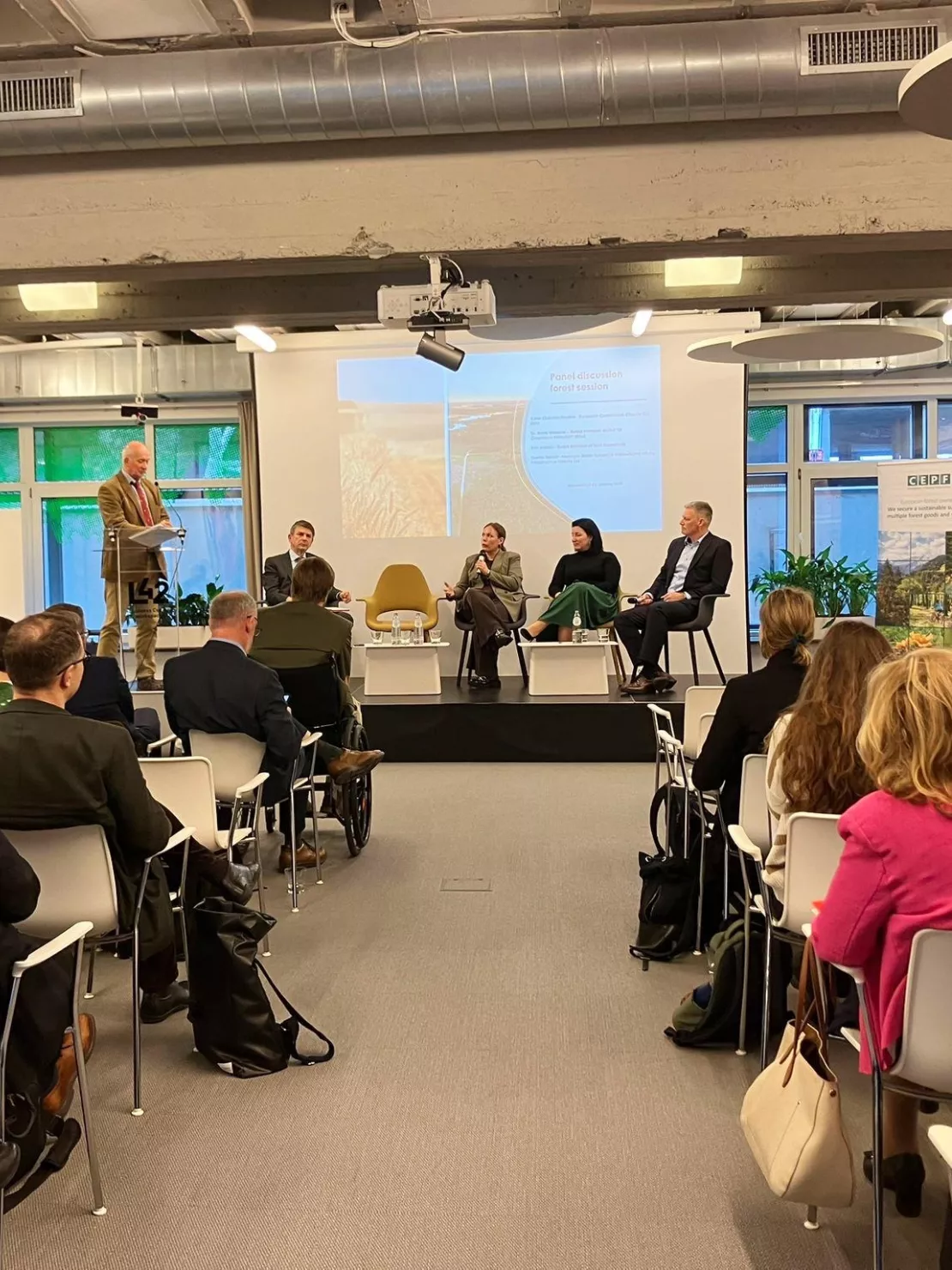
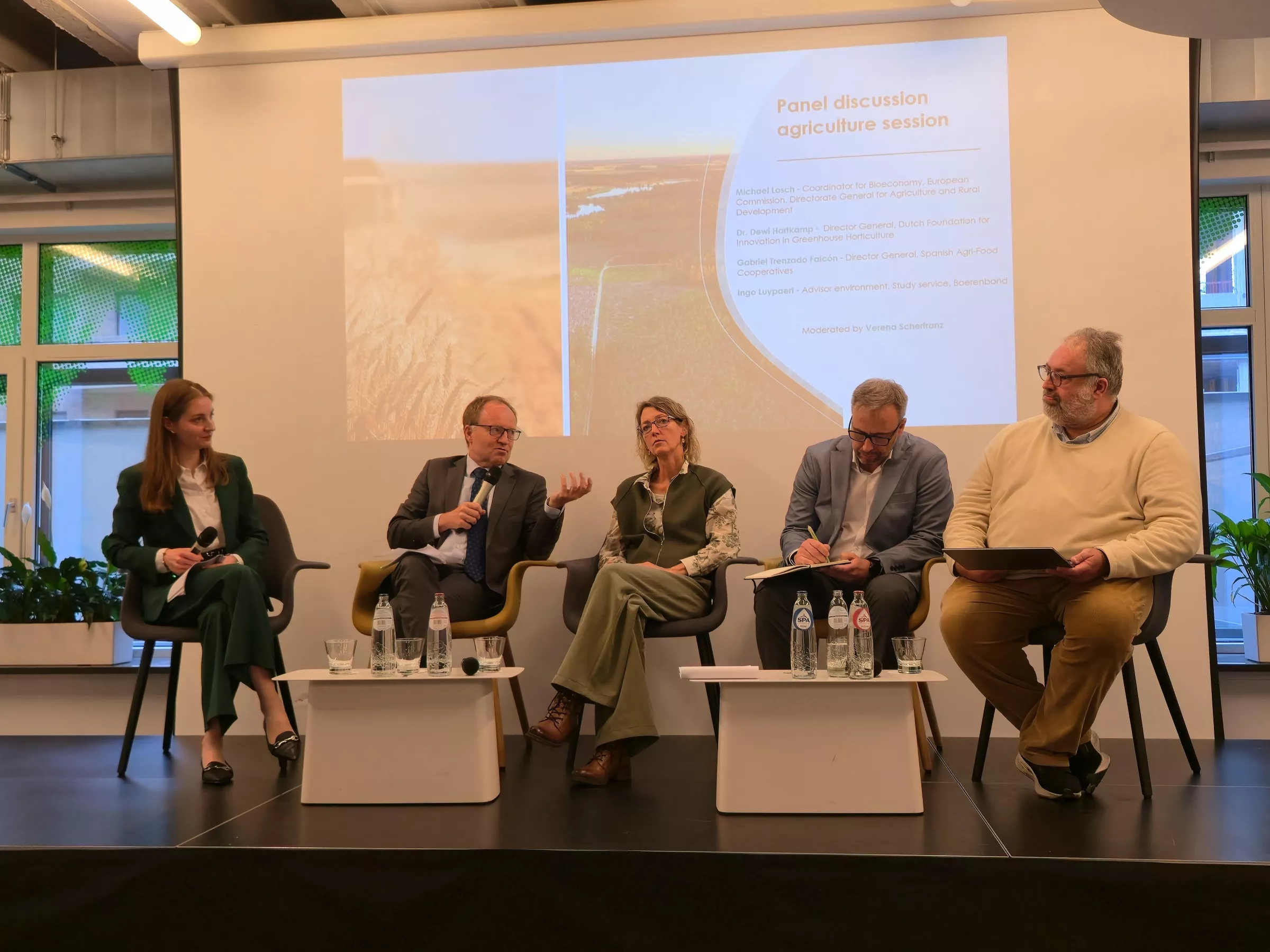
Agriculture Session: From Strategy to Soil
Moderated by Verena Scherfranz (Austrian Chamber for Agriculture), the agriculture session showcased innovative bio-based practices from across Europe.
Speakers Dr. Dewi Hartkamp (Dutch Foundation for Innovation in Greenhouse Horticulture), Gabriel Trenzado Falcón (Spanish Agri-Food Cooperatives), and Ingo Luypaert (Boerenbond) shared inspiring examples of how farmers are driving innovation — from greenhouse horticulture to cooperative initiatives — demonstrating how the agricultural sector is leading the green transition.
A subsequent panel discussion, with the participation of Michael Losch (European Commission, DG AGRI), focused on translating the EU Bioeconomy Strategy into tangible results for primary producers, highlighting the importance of collaboration between farmers, researchers, and policymakers.
In his concluding remarks, John Brosnan, Chair of the CBE JU Working Group on Primary Producers and moderator of the event, summarised the key takeaways:
- European forest owners have an important role to play in the bioeconomy to make the EU more resilient, autonomous, and competitive. They are not mere stakeholders — the new Bioeconomy Strategy should encompass them as enablers, addressing challenges and opportunities across the entire supply chain.
- Forests are sustainably managed according to numerous existing rules and the Forest Europe principles. A stable and unbureaucratic legislative framework is essential — without adding new complex rules — to ensure that forest owners can continue contributing effectively to Europe’s green objectives.

The event concluded with a networking lunch, offering participants the opportunity to continue exchanges and explore areas for future collaboration.
Following the event, the coorganisers of the event published Joint Press Release which can be found HERE
CEPF wishes to express its sincere gratitude to all speakers, participants, and co-organisers — COPA-COGECA and EUSTAFOR — for the collaboration in making this event a success.
More photos from the event
